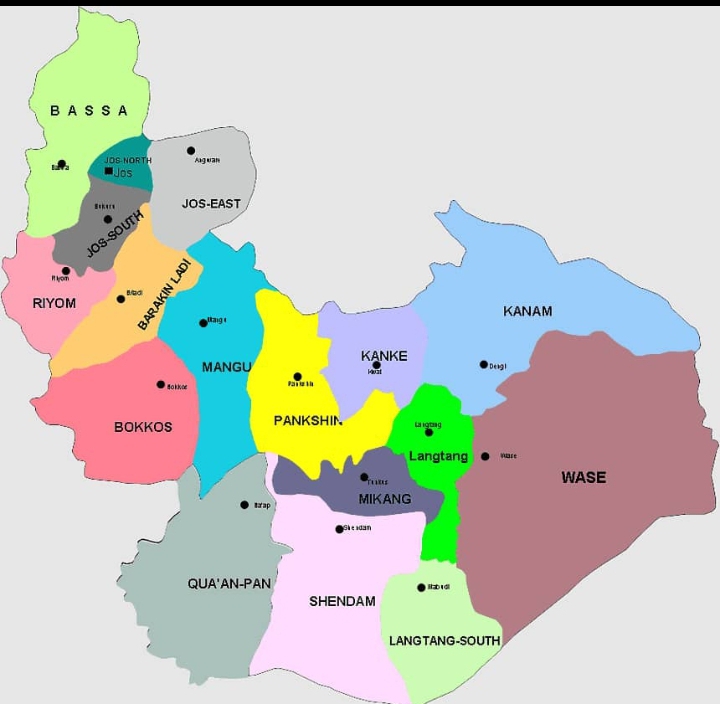Plateau State woke up to another gory tale of mindless killings when Riyom, once again, came under attack from marauding Fulani bandits within two weeks.
Apparently in pains, six women organisations in Plateau in a jointly signed statement have appealed to President Bola TInubu to look beyond the farmer herder conflict and review the security template of Plateau while cataloguing series of killings.
This time, it was Binda, in Ta-Hoss village that bore the brunt of this unending, unprovoked evil being metted on Plateau communities.
At the last count, 27 people reportedly died following the attack on that community despite the presence of security personnel and armoured military assets.
As mothers and daughters of the land, we are shedding unseen tears and no words available to us can describe the feeling arising from these murders and destruction of entire communities which have continued in defiance of reason and logic.
As women and mothers, we are especially traumatised by the constant flow of the blood of our people.
The sight of butchered babies, their mothers, and breadwiners keeps our hearts pounding. Burnt homesteads and outright destruction of livelihoods are horrible and heartbreaking sights.
We have watched with trepidation how these attacks have become repetitive without corresponding government intervention. We are disturbed that the response has always been merely reactionary, sadly contained in condolence visits and palliatives, without as much as a decisive final solution.
We join the people of Riyom and, indeed, Plateau State at large, to call on the authorities to respond to this matter with the sincerity and urgency that it deserves.
It is common knowledge that the unprovoked violence visited on our people can no longer be described in simplistic and dishonest statements as herder/farmer crisis. It has become apparent that this is an organised genocidal campaign against our people and land that should be met with comparable force.
We join other well-meaning Nigerians to call on the Federal Government to review the security template for Plateau State in line with what is required for our state’s peculiar security challenge.
That security personnel have often been suspected of collaboration with these attackers demands urgent attention and not what appears as a nonchallant attitude.
We commend His Excellency,Governor Caleb Manasseh Mutfwang for his on-the-spot assessment of the situation in the attacked community, which revealed a troubling lack of accountability on the part of the security personnel. We are worried that posers raised by the Governor during the visit were not satisfactorily responded to by the leadership of the sector command. This, together with eyewitness accounts suggesting indifference or active collaboration by the personnel calls for thorough investigation and accompanying tough sanctions where necessary.
We appreciate the Governor for his inspirational leadership,and for his assurance that Riyom, like the rest of Plateau State,will not fall.
In the same manner, we thank all concerned Nigerians for their support and prominent sons of Plateau like the Honourable Minister of Humanitarian Affairs, Dr. Nentawe Goshwe, for identifying and standing with the people of Riyom as a brother and also representing the Federal Government. His visit is a testament to the fact that what affects any Plateau person affects all.
We also acknowledge the motherly sensitivity, empathy, and compassionate love demonstrated
by the visits and donations by the mother of the nation, First Lady Sen.Oluremi Tinubu, in the wake of recent killings in the state.
We appeal to our mother and First Lady Ngo Oluremi Tinubi to use her voice and strategic position to contribute to bringing an end to the killings of our innocent children, sons, daughters, husbands and wives.
We appeal that the same prompt and compassionate spirit be deployed by the Federal Government, led by President Bola Ahmed Tinubu, to drive the process for an end to the Plateau attacks.
We demand security for our land and people and justice for victims of these atrocities.
We demand action. Enough of all the words and empty promises.
JOINTLY SIGNED BY:
NGO ABIGAIL BANGA (PRESIDENT, BEROM WOMEN DEVELOPMENT ASSOCIATION, BWEDA),
NGO DR. SARAH RENG OCHEKPE, ASSOCIATION OF BEHWONG BEROM WENENG YERE DYUK(BWYD),
NGO SUGA FLORENCE JAMBOL,
NGO DR. KACHOLLOM GANG,
NGO VERONICA KANENG GUMUT, BWYD &
NGO PROF. CHRISTY GAVOU BEST, BWYD, FOR AND ON BEHALF OF BEROM WOMEN ASSOCIATIONS.
